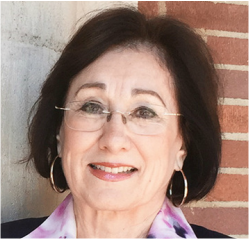Educating Immigrant Students and Emergent Bilinguals (In an Anti-Immigrant Era)

Speaker: Patricia Gándara, University of California, Los Angeles
Lecture Title: Educating Immigrant Students and Emergent Bilinguals (In an Anti-Immigrant Era)
Moderator: Sarah Garland, The Hechinger Report
Commentators: Steven Choi, The New York Immigration Coalition; Philip Kasinitz, CUNY Graduate Center, and Kate Menken, Queens College of CUNY
Date: Wednesday, November 30, 2016
Time: 6:00 p.m. EDT
City: Brooklyn, NY
Location: Brooklyn Museum
WATCH THE FULL LECTURE AND OPEN FORUM HERE!
View photos from the Lecture here.
View a five minute recap of the Lecture here.
About the Lecture
Although in the United States we pride ourselves on being a nation of immigrants, our relationship with immigrant communities has been fraught with ambivalence, uncertainties, and tension. Nowhere is this dynamic more apparent than in the way we treat immigrant languages. At times we have been willing to tolerate other languages, but much of our history has been one of suppressing these languages.
After a period of very low immigration, the U.S. Congress passed the Bilingual Education Act of 1968, which did not require that students’ native languages be taught. Now, almost 50 years later, based on new research, there is compelling evidence that bilingualism benefits both students and the nation in important ways. But transitional bilingual education—using the primary language as a bridge to English—simply falls short. Studies suggest that it would be far wiser to embrace policies and practices that support biliteracy education. Biliteracy is the key to realizing maximum benefit for all students. Looking ahead, it promises the biggest educational payoff.
About Patricia Gándara
Patricia Gándara is Research Professor and Co-Director of the Civil Rights Project at the University of California, Los Angeles. She is also Chair of the Working Group on Education for the University of California-Mexico Initiative in which she is spearheading a number of California-Mexico education projects. Gándara is a fellow of the American Educational Research Association (AERA), the National Academy of Education, the Rockefeller Foundation Bellagio Center in Italy, the French-American Association at Sciences Po Graduate Institute, Paris, and an ETS fellow at Princeton, New Jersey. In 2011 she was appointed to President Obama’s Commission on Educational Excellence for Hispanics, and in 2015 received the Distinguished Career Award from the Scholars of Color Committee of the American Educational Research Association.
Recent articles and book chapters, published in 2015, include “Charting the Relationship of English Learners and the ESEA: One Step Forward and Two Steps Back," Russell Sage Volume on ESEA at 50; “Educating English Learners in the Aftermath ofHorne v Flores," In S. Biegel, R. Kim, & K. Welner, Education and the Law, Fourth Edition. New York: West-Thomson/Reuters (American Casebook Series).
Her most recent books include The Latino Education Crisis (2009) with Frances Contreras, from Harvard University Press;Forbidden Language: English Learners and Restrictive Language Policies (2010) with Megan Hopkins, from Teachers College Press, and The Bilingual Advantage: Language, Literacy, and the U.S. Labor Market (2014), with Rebecca Callahan), a compilation of studies that demonstrates the economic value of biliteracy in a rapidly globalizing world.
Gándara’s recent reports include "Making Education Work for Latinas" (2014, Civil Rights Project with Eva Longoria Foundation) and "Fulfilling America’s Future: Latinas in the U.S. 2015" (2015, Civil Rights Project and the White House Initiative on Educational Excellence for Hispanics).
Lecture Title: Educating Immigrant Students and Emergent Bilinguals (In an Anti-Immigrant Era)
Moderator: Sarah Garland, The Hechinger Report
Commentators: Steven Choi, The New York Immigration Coalition; Philip Kasinitz, CUNY Graduate Center, and Kate Menken, Queens College of CUNY
Date: Wednesday, November 30, 2016
Time: 6:00 p.m. EDT
City: Brooklyn, NY
Location: Brooklyn Museum
WATCH THE FULL LECTURE AND OPEN FORUM HERE!
View photos from the Lecture here.
View a five minute recap of the Lecture here.
About the Lecture
Although in the United States we pride ourselves on being a nation of immigrants, our relationship with immigrant communities has been fraught with ambivalence, uncertainties, and tension. Nowhere is this dynamic more apparent than in the way we treat immigrant languages. At times we have been willing to tolerate other languages, but much of our history has been one of suppressing these languages.
After a period of very low immigration, the U.S. Congress passed the Bilingual Education Act of 1968, which did not require that students’ native languages be taught. Now, almost 50 years later, based on new research, there is compelling evidence that bilingualism benefits both students and the nation in important ways. But transitional bilingual education—using the primary language as a bridge to English—simply falls short. Studies suggest that it would be far wiser to embrace policies and practices that support biliteracy education. Biliteracy is the key to realizing maximum benefit for all students. Looking ahead, it promises the biggest educational payoff.
About Patricia Gándara
Patricia Gándara is Research Professor and Co-Director of the Civil Rights Project at the University of California, Los Angeles. She is also Chair of the Working Group on Education for the University of California-Mexico Initiative in which she is spearheading a number of California-Mexico education projects. Gándara is a fellow of the American Educational Research Association (AERA), the National Academy of Education, the Rockefeller Foundation Bellagio Center in Italy, the French-American Association at Sciences Po Graduate Institute, Paris, and an ETS fellow at Princeton, New Jersey. In 2011 she was appointed to President Obama’s Commission on Educational Excellence for Hispanics, and in 2015 received the Distinguished Career Award from the Scholars of Color Committee of the American Educational Research Association.
Recent articles and book chapters, published in 2015, include “Charting the Relationship of English Learners and the ESEA: One Step Forward and Two Steps Back," Russell Sage Volume on ESEA at 50; “Educating English Learners in the Aftermath ofHorne v Flores," In S. Biegel, R. Kim, & K. Welner, Education and the Law, Fourth Edition. New York: West-Thomson/Reuters (American Casebook Series).
Her most recent books include The Latino Education Crisis (2009) with Frances Contreras, from Harvard University Press;Forbidden Language: English Learners and Restrictive Language Policies (2010) with Megan Hopkins, from Teachers College Press, and The Bilingual Advantage: Language, Literacy, and the U.S. Labor Market (2014), with Rebecca Callahan), a compilation of studies that demonstrates the economic value of biliteracy in a rapidly globalizing world.
Gándara’s recent reports include "Making Education Work for Latinas" (2014, Civil Rights Project with Eva Longoria Foundation) and "Fulfilling America’s Future: Latinas in the U.S. 2015" (2015, Civil Rights Project and the White House Initiative on Educational Excellence for Hispanics).
